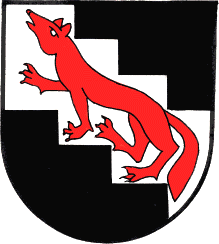Langegg bei Graz: Difference between revisions
Jump to navigation
Jump to search
Knorrepoes (talk | contribs) m (Text replace - "|width="15%"|50 px|right |}<seo title="Wappen, Gemeindewappen" />" to "|width="15%"|50 px|right |}<seo title="Wappen von Österreich" />") |
Knorrepoes (talk | contribs) m (Text replace - "|}<seo title="Wappen von Österreich" />" to "|}<seo title="|}<seo title="Wappen, Gemeindewappen, Stadtwappen, Marktwappen, Österreich" />" />") |
||
| Line 3: | Line 3: | ||
|width="70%" align="center" |'''Heraldry of the World<br>Civic heraldry of [[Austria]] - [[Austria|Österreichische Gemeindewappen]]''' | |width="70%" align="center" |'''Heraldry of the World<br>Civic heraldry of [[Austria]] - [[Austria|Österreichische Gemeindewappen]]''' | ||
|width="15%"|[[File:Austria.jpg|50 px|right]] | |width="15%"|[[File:Austria.jpg|50 px|right]] | ||
|}<seo title="Wappen | |}<seo title="|}<seo title="Wappen, Gemeindewappen, Stadtwappen, Marktwappen, Österreich" />" /> | ||
'''LANGEGG BEI GRAZ''' | '''LANGEGG BEI GRAZ''' | ||
Revision as of 18:22, 1 January 2014
| Heraldry of the World Civic heraldry of Austria - Österreichische Gemeindewappen |
" />
LANGEGG BEI GRAZ
State : Steiermark
District : Graz-Umgebung
Origin/meaning
The arms were granted on October 10, 1988.
Johann Joseph Fux, born in 1660 in today's Langegg, rose to become the famous Composer of the Baroque age in Austria, Court Composer to the Emperor. Among many other works, he wrote the "Gradus ad Parnassum", a book on musical theory.
The coat of arms attempts to represent this: Hence the fox (Fux) and the "stairs" (gradus).
Literature : Image provided by Karl Palfrader (k.palfrader@aon.at), MStLA 39 (1989), p. 34

